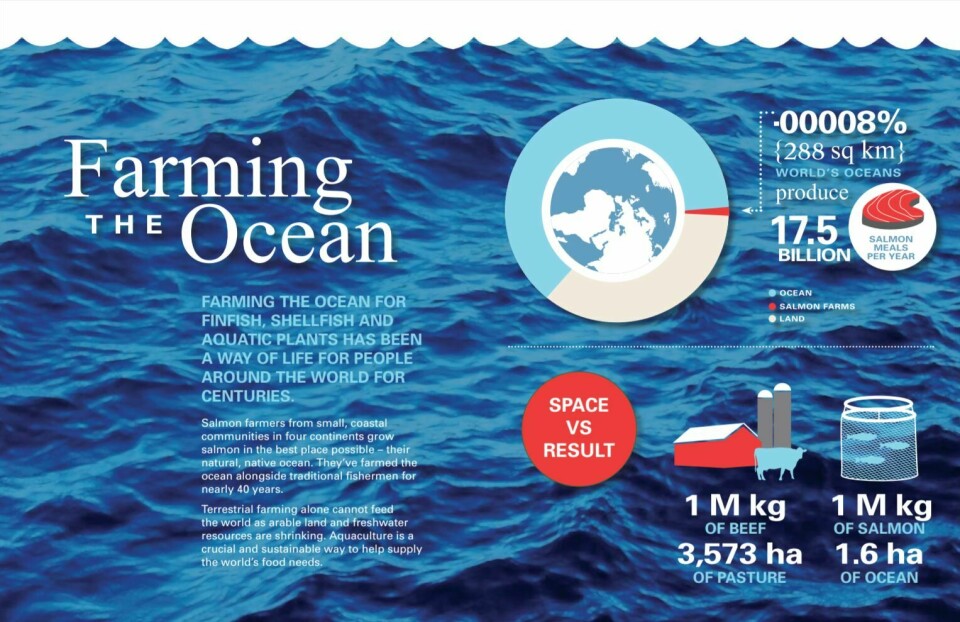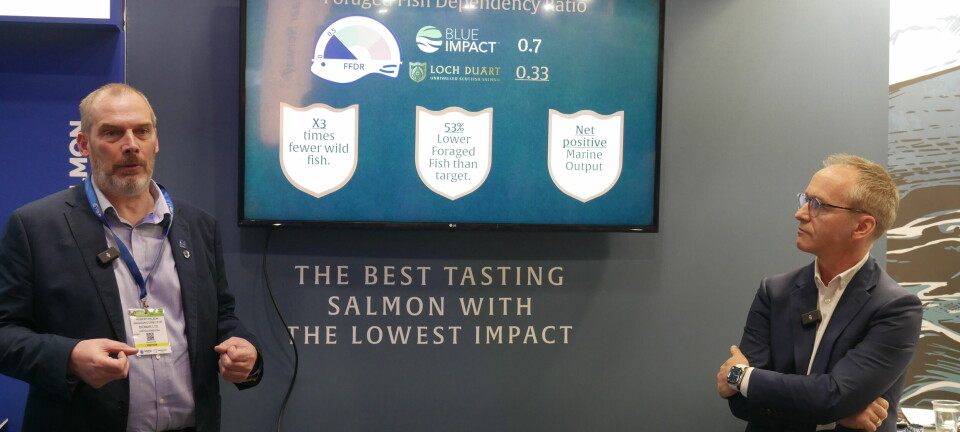
‘Healthy, affordable’ salmon celebrated on Ocean Day
Farmed salmon has become a staple of healthy and affordable diets around the world, the International Salmon Farmers’ Association (ISFA) says in a new report charting the forward progress of the industry.

The document, Salmon Farming: Sustaining Communities and Feeding the World, is an update of a 2015 publication written to mark IFSA’s 25th anniversary.
In the updated version, IFSA president Trond Davidsen writes that the industry now produces 17.5 billion healthy meals every year, supports 132,600 direct and indirect jobs around the world and has an annual production worth US $15.4 billion (£11.5bn).
288 square miles of sea
The report, published today to coincide with World Ocean Day, points out that the industry does all this while using only 288 square miles of sea – 0.00008% of the world’s oceans.
It also includes the staggering statistic that the amount of food that will be consumed in the next 50 years will exceed all the food eaten in the rest of human history.
Davidsen says: “This new report shows that the global salmon farming industry has continued to evolve sustainably.
“Our salmon farming companies are growing even more healthy meals with a minimal environmental footprint, while increasing annual production and creating more jobs in coastal communities around the world.
2.5 million tonnes
“Today the world’s salmon farmers produce 2.5 million tonnes of salmon annually. Whether you are eating fresh salmon sushi, a grilled salmon fillet or smoked salmon, the odds are it has been farmed by a member of ISFA.”
He adds: “With land and fresh water resources shrinking, the global salmon farming industry represents one of the best ways to feed the world’s growing population with a minimal environmental footprint. Our farmers are proud of the tremendous sector they have developed, and we know that salmon farming will continue to make even greater contributions.”
The report includes sections on Norway, Chile, Canada, Scotland, USA, Faroe Islands, Iceland, New Zealand and Tasmania.
In Norway the industry supports 29,000 jobs and produces 12 million meals per day, while in Canada 11,000 people owe their livelihoods to salmon farming.




















































